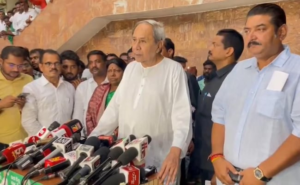

The bench clarified that ongoing mining activities will remain unaffected.
New Delhi:
In an important order, the Supreme Court has asked Delhi, Haryana, Rajasthan and Gujarat to not give any new mining permissions in the Aravallis until further directions.
Striking a balance between protecting the environment and the livelihood of the people engaged in mining activities, the court stressed, however, that its order will not in any way be construed as a stay on mining already being carried out in the range with valid permits and licences.
The Haryana government had sought the Supreme Court’s approval to begin mining in the Aravallis in Gurugram and Faridabad.
A bench of Justices B R Gavai and A S Oka said all states that are home to the Aravalli range will be free to consider and process applications and renewals for grant of mining leases, but cannot grant final permission without the court’s nod.
The bench pointed out that illegal mining was a big issue in the Aravallis and said that different states had different definitions of the Aravalli hills and range.
It said a report submitted by the Central Empowered Committee had pointed to various illegal mining activities being carried out across the state of Rajasthan and had also given district-wise details.
“We believe that the issue related to mining activities in the Aravalli Hills needs to be jointly addressed by the Ministry of Environment, Forest and Climate Change as well as all the four states,” the bench said.
‘Set Up Panel’
The court also ordered the setting up of a committee to prepare a uniform definition of the Aravalli Hills and range. The panel, which has been asked to submit a report within two months, will consist of the secretary of the Ministry of Environment, Forest and Climate Change, forest secretaries of the four states and one representative each from the Forest Survey of India and the Central Empowered Committee.
The bench clarified that ongoing mining activities will remain unaffected and current auction processes will not be interrupted. It said the order will also not apply to sand mining activities in Rajasthan and will be limited to mining in the Aravalli Range only
The bench said many labourers depended on mining activities and a ban would affect their livelihood. The directions, it said, were also aimed at balancing development and environmental protection.



